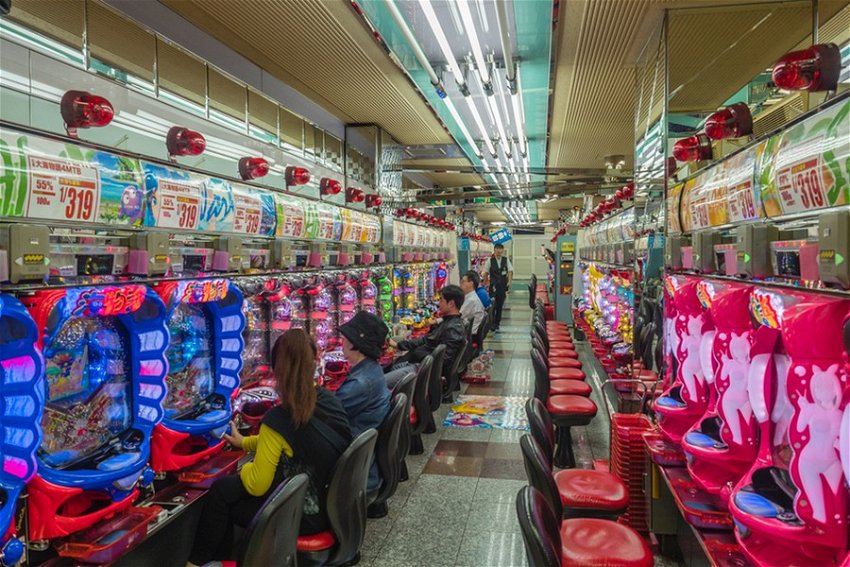Slot machines are among the most popular forms of gambling around the world. The bright colours, flashing lights, the typical 100 free spins, and the sound of coins dropping when someone wins create a thrilling experience that is difficult to resist.
The origins of slot machine addiction are complex and multifaceted. They can be traced back to a combination of individual, social, and environmental factors that can contribute to the development of an addiction. This post looks at some of the main factors that can lead to slot machine addiction.
Brain Chemistry
Brain chemistry plays a significant role in the development of gambling addiction.
When a person engages in gambling, their brain releases chemicals such as dopamine, which produces feelings of pleasure and reward. Over time as one continues to gamble, their brain becomes desensitized to the release of dopamine, and they may require more and more gambling to achieve the same level of pleasure.
Research has also shown that individuals with gambling addiction have a different brain chemistry compared to individuals without the addiction. Specifically, they have lower levels of a neurotransmitter called serotonin, which regulates mood and impulsivity. When serotonin levels are low, a person may experience more impulsivity, have difficulty controlling their urges, and may be more likely to engage in risky behaviours, such as gambling.
Individual Risk Factors
Not everyone who plays slot machines will become addicted. However, some people may be more at risk than others due to a history of addiction, mental health issues, and a desire to escape from problems. For example, people who have experienced trauma, such as abuse or neglect, may also be more likely to develop an addiction to slot machines as a coping mechanism.
Social and Cultural Factors
A combination of social and cultural factors can also cause slot machine addiction. These factors include the normalization of gambling, peer pressure, and social isolation. In many societies, gambling has become normalized and even celebrated. It is often portrayed as harmless entertainment. This normalization of gambling makes it easier for people to develop addictions because. This is especially vital considering the appeal of jackpots. Imagine getting three million-dollar-plus jackpots from IGT's Wheel of Fortune. Who’d want to stop playing at that prospect?
People may be encouraged to gamble by their friends or family members, who view it as an everyday activity. This pressure can make it difficult for people to resist the urge to gamble, especially if they feel that they will be judged or ostracized for not participating. Social isolation can also contribute to slot addiction. People who are isolated and lonely may gamble to fill the void in their lives. Excitement and thrill of gambling provide them with a temporary escape.
Availability and Access to Slots Machines
Availability and access to slots, whether physical or digital, can contribute to the development and escalation of gambling addiction. Slots are designed to be addictive, and the more opportunities people have to play them, the greater the risk of addiction. Physical slot machines are often found in casinos, bars, and convenience stores, making them easily accessible to anyone who wants to play. The convenience of gambling in these everyday settings can normalize and even encourage excessive gambling behaviour, leading to addiction.
On the other hand, online slots, such as those found on online gambling platforms, are even more accessible, as they can be played anytime and anywhere with an internet connection. The 24/7 availability of online slots can lead people to spend more time and money gambling than they intended, further exacerbating addiction.
Advertising and Marketing
It is possible that advertising and marketing can contribute to slot game addiction, as these practices are often designed to make the game seem more appealing and addictive to potential players. Here are some reasons why:
- • Attractive graphics and sound effects. Slot game advertisements often showcase high-quality graphics and sound effects to make the game more enticing to potential players. These visuals and sounds are designed to create an immersive experience that can hook players into the game and keep them coming back for more.
- • Rewards and bonuses. Slot game advertising often highlights the potential rewards and bonuses that players can receive by playing the game. These rewards and bonuses can create a sense of anticipation and excitement, leading players to keep playing in the hopes of winning big.
- • False promises. Some slot game advertisements may make false promises, such as suggesting that the game is easy to win or that players can make a lot of money by playing. For example, slogans such as "Win big" or "Jackpot!" can create unrealistic expectations about the chances of winning, leading people to gamble more than they can afford.
Chasing the Losses
Chasing losses is a term commonly used to describe behaviour in which a person continues to gamble to win back money that has been lost. This behaviour can be especially problematic in slot machine gambling, as it can lead to the development of addiction.
When you continue to play a slot machine after experiencing losses, you may become more invested in the game and feel like you are in a race against time to win back what you have lost. This can lead to a cycle of increasing bets and longer playing sessions, which can result in more losses.
Over time, the excitement and anticipation of winning can become addictive, and you may continue to chase your losses even when you know it is not a rational decision. So you better learn what every player should and shouldn’t do and stay safe.
Overcoming Slot Machine Addiction
Overcoming a slot machine addiction can be challenging, but it is usually possible with the right approach and support. Here are six simple steps you can take to overcome slot machine addiction:
- 1. Acknowledge the problem. Recognize that you have a slot machine addiction that negatively impacts your life.
- 2. Seek professional help. You can seek help from a therapist, counsellor, or support group. These professionals can help you develop a plan to overcome your addiction.
- 3. Avoid triggers. Identify the triggers that lead you to gamble on slot machines and take steps to avoid them. This might mean avoiding casinos, staying away from online gambling sites.
- 4. Create a support system. Build a support system of friends and family members who can help you stay on track.
- 5. Develop new habits. Replace your gambling habit with healthy practices such as exercise, meditation, or other activities you enjoy.
- 6. Focus on making progress each day. Celebrate your successes, however minor they are, and learn from your setbacks.
Conclusion
No single cause or factor can fully explain the origin of slot machine addiction. While some people may be more at risk than others, anyone can become addicted to slot machines if exposed to the right combination of factors. To prevent a slot machine addiction, it is good to be aware of the risks involved and to take steps to protect yourself, such as setting limits on the amount of money and time you spend gambling.












— Kommentare 0
, Reaktionen 1
Sei der erste der kommentiert